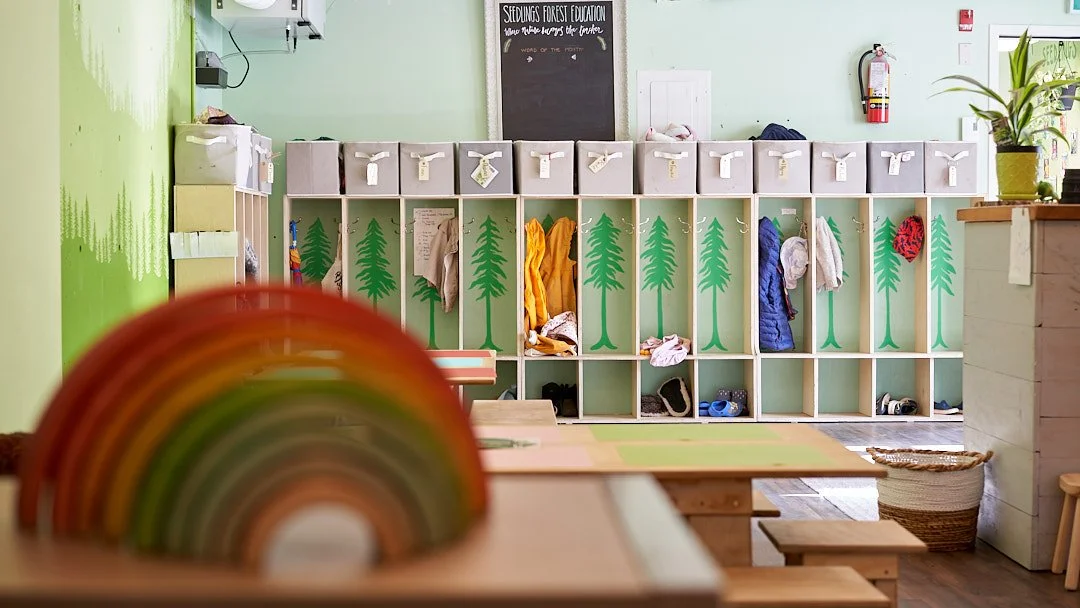At Seedlings Forest School, we strive to foster a sense of community and belonging among children, where they can develop positive relationships with each other and the natural world. Our experienced educators lead activities and encourage children to take risks, problem-solve, and make their own choices.
We believe that by providing children with regular access to nature, they will develop a deeper understanding and appreciation of the natural world and learn to live in harmony with it. Supporting inquiry-based learning empowers children to ask questions, explore their surroundings, and construct their knowledge through hands-on experiences Our goal is to help children become responsible and respectful citizens of the earth.
Our Approach
What We Believe In
A Rich Image of the Child
Our team of dedicated educators believes that all children are competent individuals capable of creating their own hypotheses and reaching their own learning through free exploration of their surroundings in a co-learning relationship with their fellow classmates, educators, and others in the greater community.
Emergent Learning
Our educators do not create and impose a set curriculum for the children. They see children as capable and believe learning is best reached through building on natural discoveries and interests. This is sometimes referred to as an "emergent curriculum." Educators join the children in their daily activities and conversations and make notes of their interests and challenges.
Inclusive Practice
Our educators work hard to create inclusive programs for the children and their families who come to Seedlings by promoting respectful, open conversations and a welcoming, supportive environment for everyone in our diverse communities.
multi-lens approach
Decolonization contributes to reconciliation and healing efforts with Indigenous communities by fostering collaboration, respect and understanding between Indigenous and non-Indigenous peoples. A decolonization lens in outdoor ECE is imperative for several reasons. It acknowledges the historical context in which outdoor education operates, decolonization entails challenging dominant narratives, valuing Indigenous ways of knowing, and dismantling Eurocentric perspectives that may dominate outdoor ECE curricula and pedagogy.
Forest Schools
Forest schools are an increasingly popular approach to educating children that began over half a century ago in Scandinavia. They're also called nature or outdoor schools.
The focus is on hands-on, experiential learning in nature, and the goal is to develop children's social, emotional, and physical well-being, as well as their cognitive skills. Students in a forest school program participate in nature-centric activities like building shelters, making arts and crafts from natural materials, and learning about plants and animals.
Our Space
We may spend a lot of time in nature, but we also enjoy a beautiful brick building in the heart of Fernwood where we nap, make art, and play indoors when appropriate. Our space is full of kiddo-sized furniture (custom-built for us by a local artisan) and toys carefully selected to encourage imaginative play.








